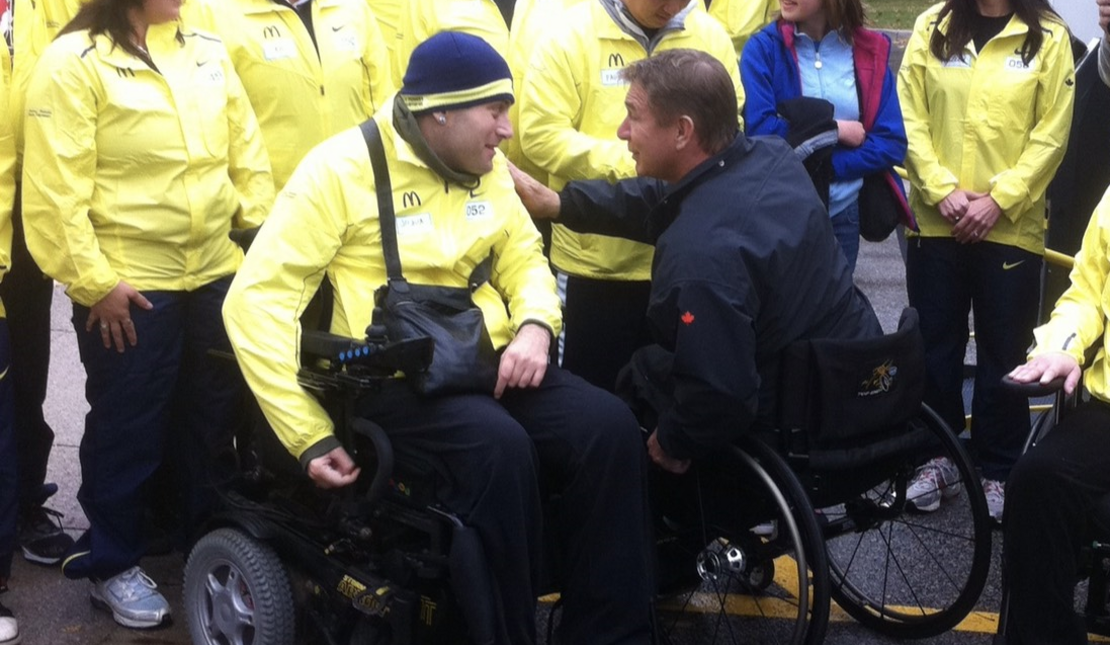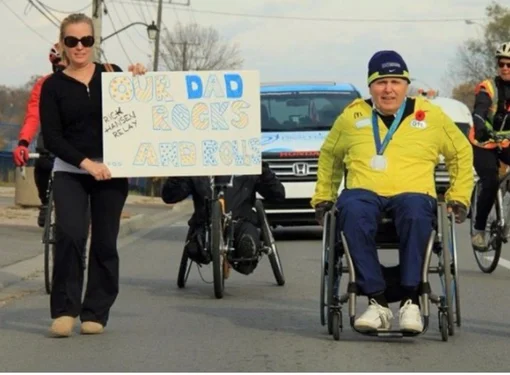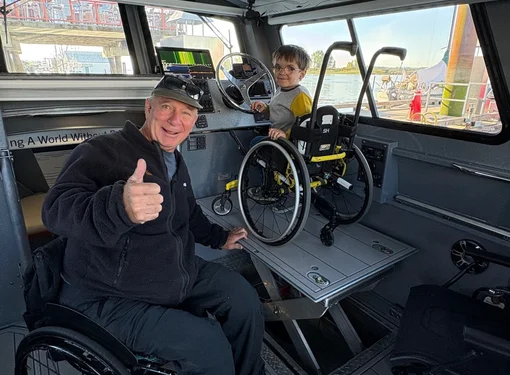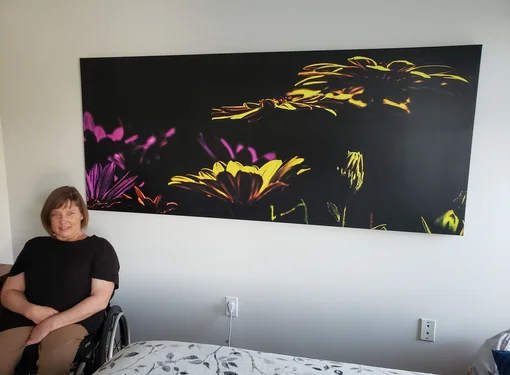Joshua Dvorkin on the Importance of Showing Up
When Joshua Dvorkin wheeled alongside Rick Hansen, he had a broken leg. He showed up anyway.
It was 2011, the 25th anniversary of the Man In Motion World Tour, and the Toronto street was buzzing with energy. Joshua, who has a spinal cord injury, pushed through the pain of his recent injury because sometimes the simple act of showing up is the most powerful thing a person can do. He knew what it meant to be unseen, and he knew the impact of visibility.
That moment, shared with the Man In Motion, is one Joshua still carries with him. Because access is not just about ramps and elevators, it’s about perception. It’s about being counted as a member of society.
Now a registered psychotherapist (qualifying) and founder of Headway Mental Health in Toronto, Joshua spends his days helping others navigate chronic illness, trauma, and disability. His clients include those newly diagnosed with life-altering conditions, members of the LGBTQ+ community, and people like himself who’ve been underestimated more times than they can count.
“People with disabilities are innovative thinkers,” Joshua said. “You want us on your team.”
The Power of Resilience
At the age of 29, Joshua was paralyzed from the chest down, the result of an epileptic seizure that caused him to fall seven feet off a balcony and fracture his spine.
He learned to breathe again after doctors told him he would always need a respirator. He told them to give him ten days. On the tenth day, Joshua took his first breath unaided. Then he moved out of the hospital and into his own apartment. He went on to earn three degrees, study complex trauma therapies, and eventually, build a practice that reflects his clinical training and lived experience.
And through it all, Joshua has noticed that no matter how much he accomplishes, there’s still a certain look he gets. A $20 bill pressed into his hand by a stranger. A shopper offering to pay for a purchase he was actually returning. “Thanks,” said Joshua. But what he really wanted to say is: “But I’m not in crisis. I’m just living my life.”
These moments, he said, point to attitudinal barriers. They’re harder to name than stairs or narrow doorways, but just as damaging. “Being invisible is a barrier. People will speak to the person I’m with instead of me. I’m right there, but they don’t see me,” he said.
That’s why his work as a Rick Hansen Foundation (RHF) Ambassador for the RHF School Program has meant so much. In school gyms and classrooms, Joshua has helped kids shift their thinking about disability by showing up, making them laugh, and telling the truth.
“Kids ask amazing questions. They laugh at my jokes—some of them. And they leave with a deeper understanding of what accessibility really means,” he said, adding, “Difference is not deficit, difference is community.”
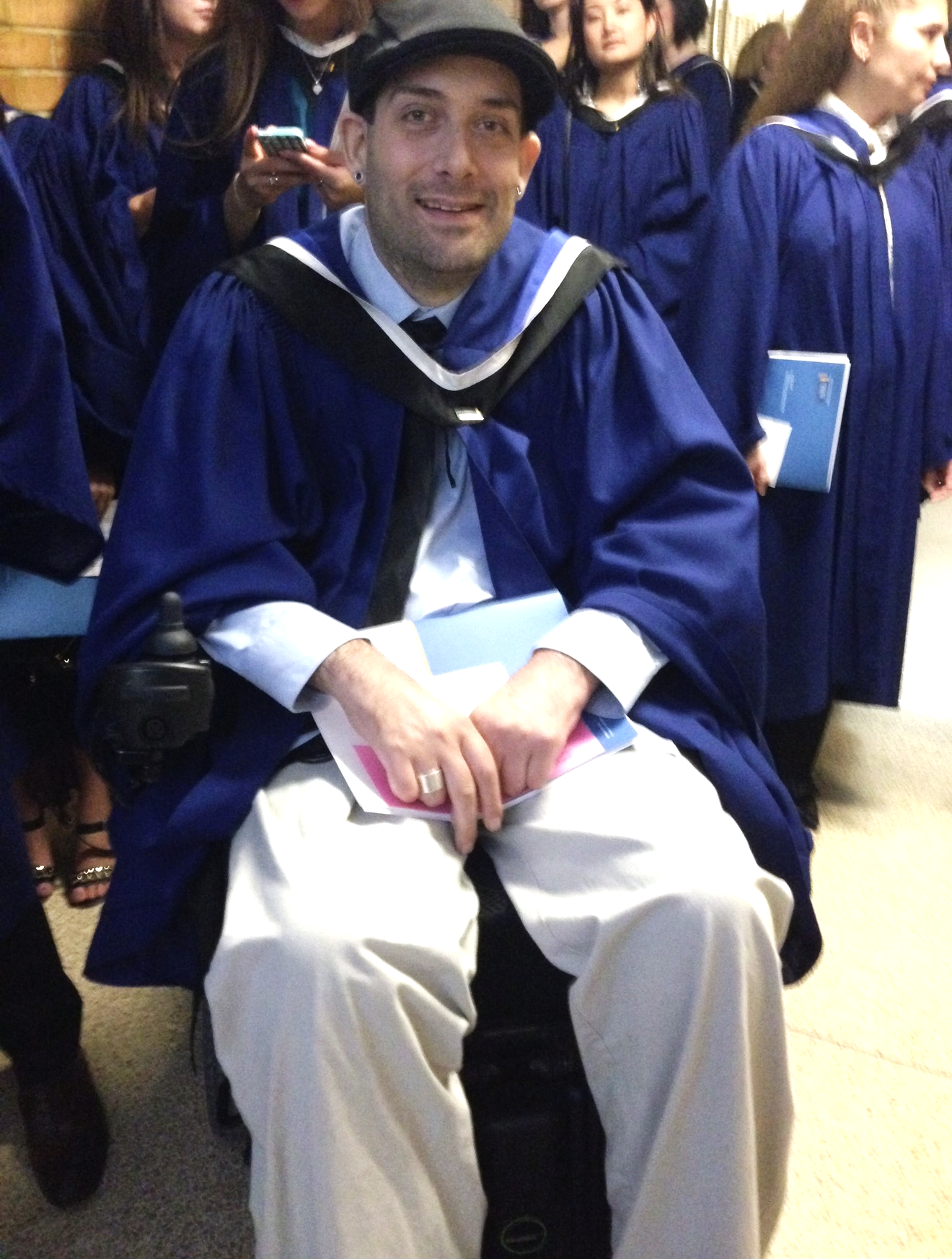
Sharing Insights to Promote Better Understanding
That belief is part of what makes the existence of Headway Mental Health so important in the therapy space. At a time when the conversation about inclusion is up for debate, Joshua is building something concrete, to provide tools for healing, growth, and post-traumatic resilience. His dream is to grow the business and employ other people with disabilities, dismantling employment barriers from the inside out.
He’s also brought his insight to the screen, consulting on the film Butterfly on a Wheel, written and directed by two-time Emmy award-winning composer Trevor Morris. Whether on a film set or in a therapy session, Joshua moves through the world with presence, empathy, and a deep understanding of how fragile and beautiful the human condition is.
This National AccessAbility Week, as the Rick Hansen Foundation celebrates 40 years since the start of the Man In Motion World Tour, Joshua asks others to show up, too, by supporting the Foundation’s work to eliminate both physical and attitudinal barriers.
Donate Today
Thank you for helping to create a world where difference is celebrated and access is universal.
